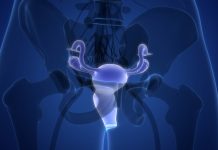A life-extending link has been discovered between minimum physical activity and inoperable lung cancer
Lung cancer remains the leading cause of global cancer-related deaths, claiming more lives annually than any other cancer. The study, led by Curtin University, based its findings on a study of 89 individuals diagnosed with inoperable lung cancer and suggested that engaging in less than five minutes of moderate-to-vigorous daily physical activity could significantly lower mortality risk.
Incorporating moderate activities into daily lifestyle
The team, comprised of experts from Curtin School of Allied Health, Curtin enAble Institute, and other research organisations, closely monitored the daily activity levels of participants from the time of their inoperable lung cancer diagnosis. After 12 months, the researchers compared mortality rates between those who incorporated moderate to vigorous activities, such as walking, into their routine and those who remained inactive.
The results showed that individuals engaging in more than 4.6 minutes of moderate-to-vigorous physical activity showed a remarkable 60% lower mortality risk than their less active counterparts.
The benefits of physical activity
Associate Professor Vin Cavalheri, the lead researcher and former Cancer Council WA postdoctoral Fellow, emphasised the significance of these findings in early cancer management. The study highlights the importance of assessing an individual’s physical activity levels at the onset of inoperable lung cancer and the potential benefits of integrating exercise into treatment plans.
Cavalheri stressed the need for personalised approaches to physical activity, recognising each patient’s unique circumstances and goals. With 24% of study participants engaging in less than one minute of moderate-to-vigorous physical activity daily, the study highlights the importance of tailored exercise regimens that individuals can realistically adopt.
Challenging bed rest concept
The research challenges the traditional notion of bed rest during illness, suggesting that even minimal physical activity could be beneficial for individuals dealing with serious diseases like cancer.
Cavalheri noted that these findings align with existing research showing a positive correlation between higher physical activity levels and reduced mortality in various health conditions, including colorectal, breast, prostate, and chronic obstructive pulmonary disease.
As the study raises intriguing possibilities, Cavalheri calls for further research through randomised controlled trials specifically designed for individuals with inoperable lung cancer. These trials could explore interventions to improve and sustain physical activity levels, offering a new dimension in the comprehensive care of individuals facing this challenging diagnosis.











